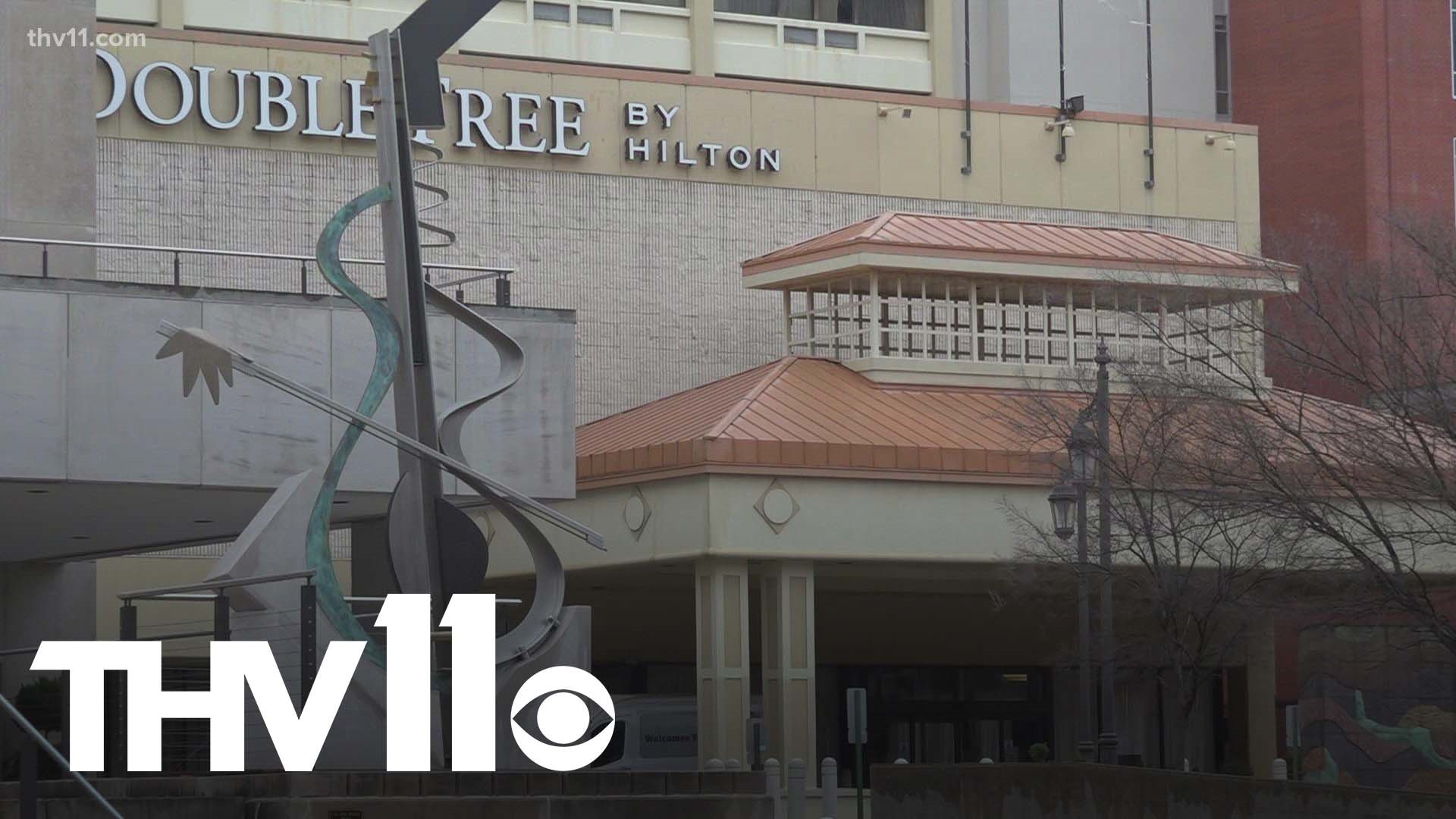LITTLE ROCK, Ark — The impact that COVID-19 has had on venues for the entertainment industry has been well documented – theaters and arenas in our area were forced to postpone shows and furlough employees at the start of the pandemic.
Now, most of them are back in business, but the surging omicron variant has many people on edge.
At the Robinson Center, they were forced to postpone shows scheduled for this weekend.
"With breakthrough COVID cases in the cast, we had to postpone that to next fall, and we're looking forward to that then," Deana McCormack, Marketing Director for the Little Rock's Celebrity Attractions said.
Rather than Fiddler on the Roof playing this weekend, chairs will be empty. It's a callback to the beginning of the pandemic.
"And on March 12th of 2020, we announced our next Broadway season, and we were thrilled to announce the Arkansas premier of Hamilton," McCormack said. "That day is kind of when the world shut down."
Speaking of Hamilton, that's coming up in February – if the omicron variant doesn't force them to postpone.
"Rigorous testing among the cast, for the hall staff, for us," McCormack said. "Just to make sure that everyone is strong and healthy."
If omicron were to sideline a show as big as that, or even cancel the season, it's a huge loss for the city.
Previous shows that saw huge crowds, like The Lion King in 2018, saw 49,000 people over all show dates.
The economic impact of just that show? Over 11 million dollars, according to McCormack.
"For instance, if a show is cancelled and that cast doesn't come to town, that cancels out hotel rooms for when they come stay here in Little Rock, or you lose out on that restaurant money," McCormack said. "Or the city has employees that planned to work all weekend, and now they're not."
In a statement, Little Rock Convention and Visitors Bureau President and CEO Gretchen Hall said of COVID-19:
It's extremely disruptive, but we continue to monitor cases and follow CDC guidelines to best ensure the safety of patrons.
At the end of the day, that's what it's about – making sure people are safe at the theater, even if it means shows get pushed back.
"We know what needs to happen and how to protect people, and so I'm actually more positive, I'm not as scared," McCormack said. "Cause we've lived through two years of this craziness, and I think it's just preparing us to keep moving forward."

